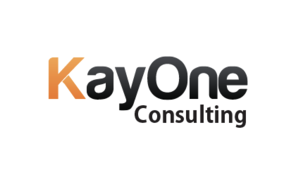What is Included in Virtual CFO Services?
Do you know that almost 70% of SMEs would want their accountants to provide business advisory services over the next 5 years? Are you aware that one-third of SMEs use their accountants as virtual CFOs or want to?
In these unprecedented times, digital technologies are leading to new SME expectations. SMEs expect digitization and financial analytics to automate not only performance reporting and compliance. But, they expect even their accounting teams to provide such machine-level value.
In other words, the CFOs of the future are expected to go way beyond basic number-crunching. They are expected to be the stewards, operators, strategists, and catalysts at the same time.
But amidst these rising expectations, the key challenge that startups, small and medium enterprises encounter is that they have access to limited financial resources. Due to the paucity of funds, they are unable to hire CFOs just like large corporates.
Enter virtual CFO services. Virtual CFO Service Providers (CSPs) provide expert financial assistance to startups and SMEs at an affordable cost relative to a full-time CFO.
In this article, we are going to discuss what are virtual CFO services and how can such services help startups and SMEs gain a competitive advantage.
[monsterinsights_popular_posts_inline]
Who is a Virtual CFO?
A Virtual Chief Financial Officer or VCFO is also called an Outsourced CFO or a Shared CFO. Accordingly, a virtual CFO is an outsourced service provider offering professional expertise to fulfill the financial requirements of an organization.
A virtual CFO may be a single person or an entity that functions just like the Chief Financial Officer of large organizations.
Such experienced financial professionals are extremely beneficial especially for start-ups, small and medium enterprises. This is because such firms are able to keep their fixed costs low. Plus, they get the flexibility of choosing high-skill assistance for their financial department as and when they need it.
Even the larger corporates, having full-time CFOs working with them, may hire virtual CFOs. They can take virtual CFO services for their subsidiary/joint Ventures and virtual CFO support services for their existing CFO offices.
Further, virtual CFOs offer a comprehensive suite of services. These include strategy formulation, financial management, transaction support, compliance, reporting, and budgeting.
This means the CFOs of the future have to fulfill both the accounting as well as the business advisory roles within an organization.
Benefits of a Virtual CFO Services For Startups and Small Businesses
A virtual CFO is an individual or an entity that takes on the role of CFO for a client on a
contract basis. The increasing adoption of cloud accounting systems has enabled CFOs to work remotely.
The following are the key benefits or services that virtual CFOs can offer to their clients:
- Offering traditional accounting services such as month-end financial statements, bank reconciliation, and management reporting
- Providing a snapshot of financial insights and key performance indicators through monthly MIS and Adhoc reports
- Managing compliance in terms of corporate governance, income tax and TDS, GST, company law, and labor law
- Managing finance and preparing accounts like cash flow management, receivable management, payable and vendors, fund management, treasury operations, etc.
- Capitalizing on opportunities by preparing P&L budgets, Cash flow budgets, Cost sheet variance, Group level budgets, and variance analysis
- Mentoring departmental heads in agile decision making, scenario planning, and decentralized decision making
- Providing guidance and advice to the CEO and board on a range of other issues
- Determining whether a company’s business model and financial processes are fit for present and future purposes
- Restructuring, M&A, and succession planning
- Ongoing review of risk exposure
[monsterinsights_popular_posts_inline]
Virtual CFO Services
The virtual CFO groups offer some of the best VCFO services at affordable prices to startups and SMEs.
1. Periodic Reporting
Large corporations have an established MIS reporting system in place. This is because such a system highlights the key performance areas of the business. Further, it provides valuable insights to the management for making informed decisions.
Since startups and SMEs have to maintain low fixed costs, they often overlook using a sound MIS reporting system. They find a great challenge while managing and liaisoning with external investors like VCs or angels. This is because the external investors have their own reporting structures and information requirements.
Thus, it is important for a business to provide well-documented, authentic, and periodic reports ahead of set deadlines.
Virtual CFOs have the expertise in assisting the investors in implementing the MIS reporting structure. They provide detailed monthly, weekly, and daily reports that help businesses make long-term strategic and important immediate decisions.
The following are the range of investor reporting services that virtual CFO services offer:
- Monthly detailed MIS reports
- Adhoc reports
- Periodic strategic and business insights
- Follow up report after raising capital
2. Tax and Other Legal Compliance
One of the other important virtual CFO services is to ensure that a business is always compliant in terms of income tax, GST, and law.
The virtual CFOs ensure that your business always remains compliant with income tax, GST, and another set of taxes. They help your business design and implement systems to capture tax data in support of tax compliance activities. Further, they also see to it that your business never misses a deadline with regard to the filing of tax returns.
In addition to tax management, the virtual CFOs offer a comprehensive suite of services to meet corporate governance and other regulatory compliances. For instance, they make sure that the month-end close process is undertaken error-free. Also, the virtual CFOs ensure that they meet regulatory compliance within the stipulated timeframe.
Additionally, these virtual CFOs take care of the regulatory activities that are outside the scope of an organization’s normal business activities. Such activities may include mergers, acquisitions, or other special assignments.
All such activities boost the confidence of the investors, facilitate performance management, and enhance decision-making. It also increases transparency and hence helps businesses manage risks effectively.
[monsterinsights_popular_posts_inline]
Thus, the following are the different compliances that virtual CFOs manage for their clients:
- Goods and Services Tax compliance
- Income tax and TDS return filing and other set of compliances
- Corporate governance regulations and compliances
- Company law adherence
- Labor law adherence
3. Financial Management
This is one of the core functions that virtual CFOs offer to their clients. The top-level management expects the CFOs to be proactive, have forward-thinking, and hence drive better decision-making.
Further, they also expect the CFOs to provide quick and seamless access to high-quality financial data. This is because such data would help startups and SMEs in managing risks quite well.
Thus, one of the key virtual CFOs services is that of optimizing the financial processes. Such a service is more than just capturing the financial data or recording accounting entries. It involves managing the day-to-day operations of a business. These may include receivables management, cash flow management, managing treasury operations, fund management, and the management of payables.
As a part of financial management, virtual CFOs review the information systems of a business. Then, they compare such systems with world-class benchmarks to find opportunities for optimization.
Then, the virtual CFOs implement internal controls, automate manual processes, optimize accounting processes. All such efforts facilitate increased productivity, accurate data, and lower finance costs.
Thus, financial management offered by virtual CFOs may include the following set of services:
- Financial management including accounts payable, accounts receivable, reporting of financial statements, etc
- Cash flow mangement to meet working capital requirements and other treasury operations
- Fund management and meeting capital requirements
[monsterinsights_popular_posts_inline]
4. Budgeting and Controlling
The CSPs can help organizations in establishing business goals and developing strategies to achieve these goals. They can help organizations in tracking business performance, undertaking regular reviews, and taking corrective actions if needed.
In other words, one of the important services that virtual CFOs offer to startups and SMEs is that of budgeting and controlling. This is because the budgeting process is typically non-existent in such firms.
One of the important contributions that virtual CFOs make is to work on the variance reports. Such reports compare the actual performance of a firm with the budgeted performance to understand the deviations.
For instance, variance analysis undertaken by the CSPs helps a business in understanding the relevancy of the assumptions on which the forecasts were based. Further, it also helps a business in understanding whether the actual performance was in line with the budgeted one.
Likewise, the CSPs prepare P&L budgets and compare them with actual revenues and expenses. Such an analysis helps them in understanding the sales, purchase, or pricing issues as the case may be. At times, actual vs budget variances may indicate that there is a need for the business to change its overall business strategy. Else, there may be some managerial issues that are giving rise to such variances.
Thus, budgeting and controlling services of virtual CFOs may include:
- Undertaking variance analysis
- Preparing P&L Budgets, Cash Flow Budgets, or Group Level Budgets
- Working on cost sheet variance
5. Transactional Support
The financial transaction support services include general accounting services. These account for bookkeeping, maintaining error-free financial statements as per reporting standards, management reporting, etc.
This is to say that the CFOs need to organize the finance function within an organization. They need to adapt the finance function in such a way that it is able to fulfill the new requirements.
Startups and SMEs face a lot of uncertainty with regards to business strategy and efficiency of the finance function. However, virtual CFOs lay a solid foundation in helping businesses grow to the next level.
They ensure that the finance and accounting function of a business helps in achieving its corporate strategic goals. In addition to this, they evaluate their current performance against external benchmarks to understand the existing gaps.
Further, they ensure financial information quality, reliability, timely reporting, and risk management. Besides this, they always aim to reduce costs within the finance function and hence achieve efficiency.
The following are the services that virtual CFOs offer as a part of transactional support:
- Reliable and accurate financial reporting
- Reconciliation of financial statements
- Maintaining books of accounts
- Management reporting
[monsterinsights_popular_posts_inline]
Final Thoughts
Many businesses have realigned or are in the process of realigning their business practices with the advent of digitization. One important aspect that startups and SMEs are seeking to realign is that of the CFO.
However, these firms do not have the financial bandwidth to bring a full-time CFO on board. Hence, they are filling the gap by hiring a virtual CFO. Needless to say, that the virtual CFO services is the future of the finance professionals across the world.




